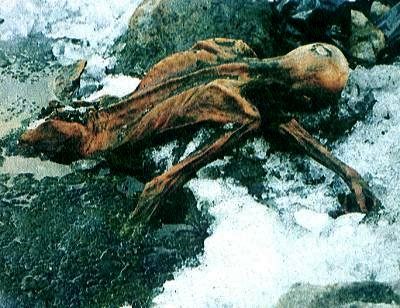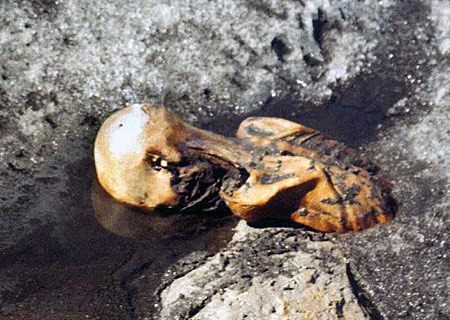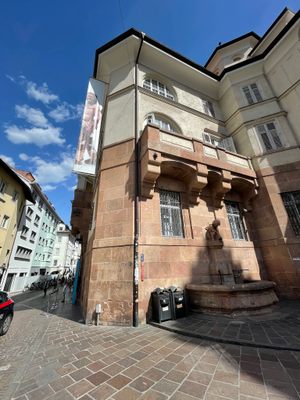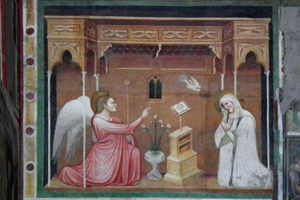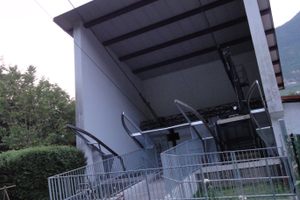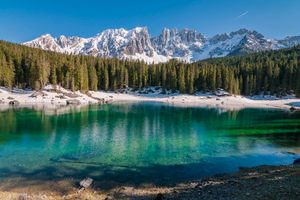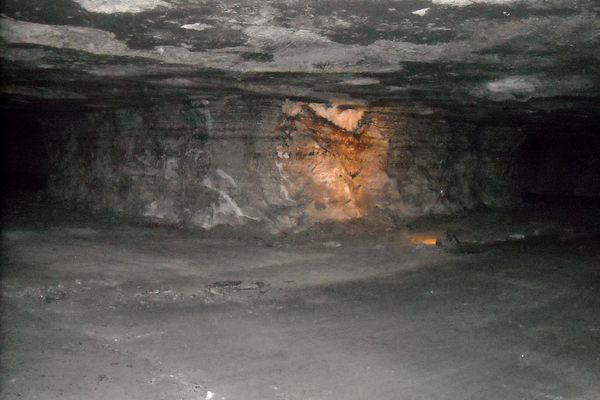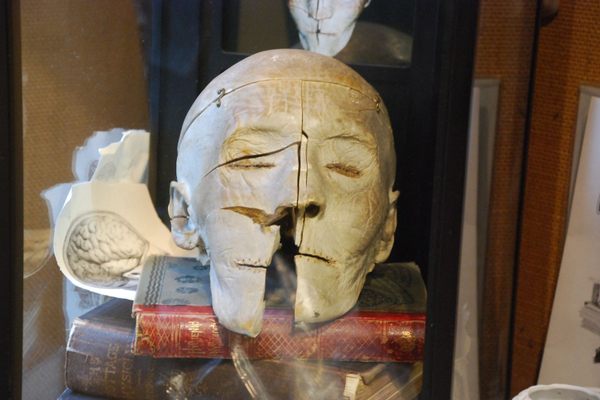About
Three basic conditions can lead to natural mummification: extreme dryness or aridity (as in deserts), extreme acidity (as in bogs), and extreme cold (as on mountains) which essentially freeze-dries the body. In all cases, it is the harsh conditions that halt bacterial destruction of the corpse and lead to natural mummification. Perhaps the most famous of these “freeze-dried” mummies is Ötzi the Iceman.
Ötzi was found by Helmut Simon in the Ötztal Alps, half-buried in a glacier in 1991. There is a bizarre side story as to disputed claims over who actually found Ötzi: famed mountaineer (and author of the book My Quest for the Yeti, Reinhold Messner, appeared as witness for a Slovenian actress who claims to have found Ötzi first.
Ötzi, or “Frozen Fritz” as he is sometimes called, lived around 3300 BC and is Europe’s oldest natural human mummy. He represents an excellent example of the surprising technological prowess of copper age humans. Surrounded by his gear, the 5,300-year-old “Iceman” was much better equipped than most modern tourists are for their Alpine hikes: he had a copper ax, a bow and arrow, a knife, snowshoes, some antibacterial mushrooms, and what appears to have been a complex firestarting kit including “tinder fungus,” a mushroom that bursts into flame when struck with sparks.
Ötzi was also adorned with some 57 tattoos consisting of simple dots and lines. He may have also been involved in copper smelting, as high levels of copper were found in his hair.
Scientists are unsure of how exactly Ötzi died but an arrowhead was found lodged in his shoulder. Additionally, there was extensive head trauma and a deep cut on his thumb and bruises on his wrists. DNA evidence suggests he was covered in the blood of four others. In other words, Ötzi went out fighting. It is likely that Ötzi was part of a raiding party and was killed in a violent skirmish that led to his death. His last meal before he died: some fruit, grain, and Chamois.
One can see Ötzi in the Iceman in the South Tyrol Museum of Archeology in Bolzano, Italy.
Related Tags
Flavors of Italy: Roman Carbonara, Florentine Steak & Venetian Cocktails
Savor local cuisine across Rome, Florence & Venice.
Book NowPublished
November 5, 2009

